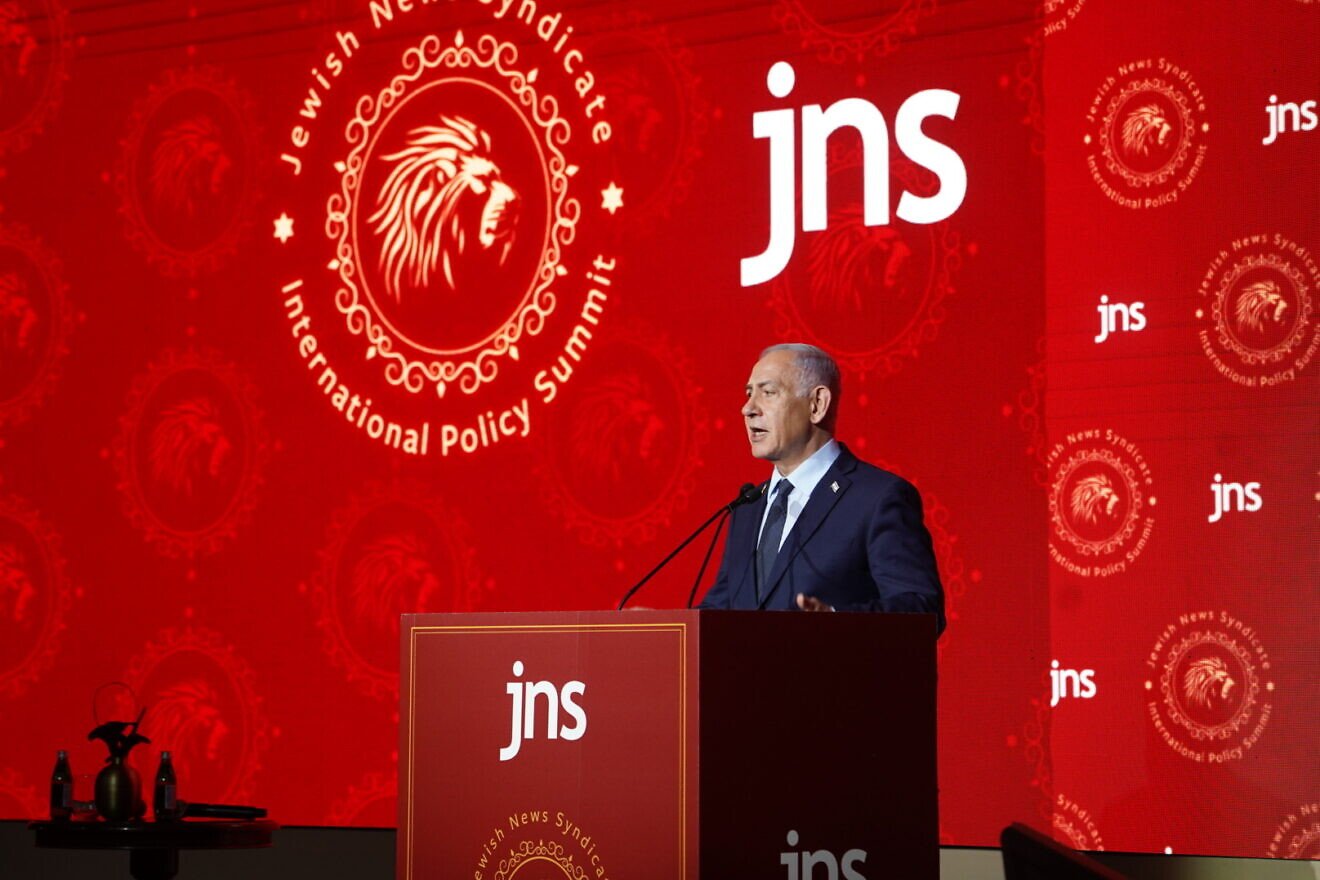Debbie Weiss
 A picture released by the Israeli Army says to show Israeli soldiers conducting operations in a location given as Tel Al-Sultan area, Rafah Governorate, Gaza, in this handout image released April 2, 2025. Photo: Israeli Army/Handout via REUTERS
A picture released by the Israeli Army says to show Israeli soldiers conducting operations in a location given as Tel Al-Sultan area, Rafah Governorate, Gaza, in this handout image released April 2, 2025. Photo: Israeli Army/Handout via REUTERS
Israel’s Strategic Affairs Minister Ron Dermer vowed at a policy summit on Monday that Israel would defeat Hamas and bring home the hostages still being held by the Palestinian terrorist group in Gaza.
His remarks came amid reports that Israeli officials had formally rejected an Egyptian-brokered proposal for a five-year truce between Israel and Hamas in exchange for the release of 59 hostages still held in Gaza.
“We are going to dismantle Hamas’s military capabilities and end its rule in Gaza. We will ensure that Gaza can never again pose a threat to the State of Israel. And we are committed to bringing all our hostages home. These are the goals we have set, and we fully intend to achieve them,” Dermer vowed.
An Israeli senior official was cited earlier in the day as saying that Jerusalem had rebuffed a five-year truce that would see Hamas able to “rearm, recover, and continue its war against the State of Israel with greater intensity.”
The sentiment was echoed by several civil society leaders at the Jewish News Syndicate policy summit in Jerusalem, which brought together largely conservative policymakers, diplomats, academics, and journalists.
“There is absolutely no way that Hamas will give over every piece of its leverage. Even if there is a ceasefire, it will look more like [the one with] Hezbollah, which is not actually a ceasefire,” political commentator Meira Kolatch said, referring to the truce repeatedly violated by the Iran-backed terrorist group.
“The soldiers won’t agree to this,” Kolatch told The Algemeiner.
American influencer and PragerU host Xaviaer DuRousseau warned against “over-negotiating” with a terrorist organization such as Hamas. “Five years is far too long for Hamas to exist. Five days is too long. We need to be much more direct and forceful in doing everything to bring the hostages home and make sure Hamas is wiped off the planet.”
Beyond the Gaza war, a major focus of the gathering was Iran.
In his address at the summit a day earlier, Israeli Prime Minister Benjamin Netanyahu laid out a framework for countering Iranian nuclear ambitions. Noting strong US-Israel alignment on preventing Iran from developing nuclear weapons, Netanyahu called for a deal that would fully dismantle Iran’s enrichment infrastructure and curb its production of intercontinental ballistic missiles (ICBMs).
“A bad deal is worse than no deal,” Netanyahu warned, emphasizing that only the complete dismantling of Iran’s nuclear infrastructure would eliminate the threat.
“The only good deal that works is a deal like the one that was made with Libya that removed all [nuclear] infrastructure,” he said.
Speaking to The Algemeiner, Israeli Ambassador to the UN Danny Danon expressed skepticism over the Trump administration’s Oman-based talks with the Islamic Republic over its nuclear program, calling the Iranians “masters of deception.”
Dermer was more diplomatic, telling audience members that he was “confident” that US President Donald Trump would “make a good deal.”
In his address to the gathering, Danon vowed the war against Hamas “will not end with hostages [remaining] in Gaza,” referring to those kidnapped during the Hamas-led invasion of southern Israel on Oct. 7, 2023.
Addressing Trump’s decision to nix the nomination of Rep. Elise Stefanik (R-NY) as the American ambassador to the UN, Danon said he was “deeply disappointed” but confident that the president would pick a “strong” candidate for the role and also have a hand in appointing a secretary-general who would be more favorable to Israel than the incumbent, António Guterres.
Danon, who led a delegation of over 30 UN ambassadors to the Hamas-attacked communities of southern Israel as well as to the site of the Nova music festival massacre, said Israel was under “constant attack” at the UN. He pointed to the virulently anti-Israel UN special rapporteur for Palestinian rights, Francesca Albanese, who he said should be barred from entering the US.
 Israeli Ambassador the United Nations Danny Danon. Photo: Debbie Weiss / The Algemeiner
Israeli Ambassador the United Nations Danny Danon. Photo: Debbie Weiss / The Algemeiner
The Israeli envoy also backed Trump’s efforts to weed out antisemitism on US campuses and stop “dangerous outsiders who are not even students but who go on campuses to incite.”
Supporters of Israel should be “as engaged as possible in the fight against antisemitism,” Danon told The Algemeiner.
As for the war against Hamas, some experts in attendance argued that Israel also has to alter its approach to Egypt, with which Jerusalem has maintained a peace treaty for decades.
Jonathan Conricus, former Israel Defense Forces (IDF) spokesman and senior fellow at the Foundation for Defense of Democracies, said Israel’s approach toward Egypt needed urgent reassessment.
“They hold the keys to the future of Gaza,” Conricus told the Algemeiner, referring to Egypt’s control of the Rafah border crossing, which connects southern Gaza and Egypt.
He criticized Israel’s reliance on diplomatic incentives with its southern neighbor, urging a tougher stance while preserving the peace treaty.
“We’ve been using way too much carrot, and far less than the necessary stick. They are, in many ways, dictating terms that we should be dictating and that’s very regrettable,” he said.
“Every moment that they continue to keep the gates closed at Rafah really makes it close to impossible for us to actually defeat Hamas,” he added.
As for the status of the US-Israel relationship, Matt Brooks, CEO of the Republican Jewish Coalition, warned against what he termed the “woke right” of the Republican party.
“The cancer that has taken over the Democratic Party with the woke progressive left – with Bernie Sanders, AOC, Ilhan Oman, Rashida Talib, and the protesters on college campuses – we’re starting to see the beginning cells of that cancer start to take hold in the Republican Party,” Brooks told the audience.
Speaking later to The Algemeiner, Brooks said the danger came from rising voices within the GOP advocating American disengagement from the world, led by figures like Tucker Carlson.
“There’s not a lot of foreign policy difference and in some ways economic populist difference between, say, Bernie Sanders on one hand and Tucker Carlson on the other,” he said.
Extremes on both the right and the left were converging in a form of “neoisolationism” that seeks to “withdraw America’s role in the world and shrink it to just to our borders” and that views Israel as a liability rather than a strategic ally, Brooks said.
“It’s a very dangerous place for the Republican Party and for the country to go,” Brooks said.
On the international scene, the director of UK Lawyers for Israel, Natasha Hausdorff, who joined a legal panel at the event, urged private individuals to take a more active role in advocating for the rule of law and equal treatment for Israel in the international arena, particularly in legal forums. She emphasized that civil society actors are often able to speak and act more freely than the state itself, which is constrained by diplomatic considerations.
“I fundamentally believe that we as civil society have a great deal more to contribute to the legal debate. There is currently a deficiency of Israel demanding its equal rights and demanding the proper application of international law in the international space,” she told The Algemeiner.
In Israel’s case, Hausdorff said, international law was being weaponized, resulting in “the erosion of legal terminology like apartheid, genocide, ethnic cleansing, colonialism, occupation.”
Marcus Sheff, CEO of curricula watchdog IMPACT-se, focused on the role of education in combating antisemitism. He cited Elie Wiesel’s assertion that fighting antisemitism must begin with books.
“Textbooks are uniquely authoritative: they are a key tool in creating the societies of the future that will keep Jews safe,” Sheff told The Algemeiner. “From Saudi Arabia and the UAE to Morocco and Azerbaijan, antisemitism is being eradicated from national school curricula.” He urged Western countries — and even some school districts in the US — to follow the lead of those Muslim states.
 “Ściek antysemicki”, “rzeczy obrzydliwe”. Kandydaci na prezydenta reagują na słowa Brauna
“Ściek antysemicki”, “rzeczy obrzydliwe”. Kandydaci na prezydenta reagują na słowa Brauna






